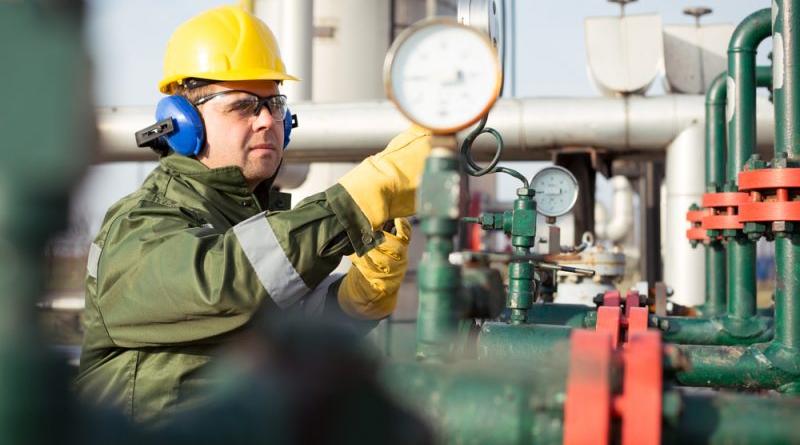Will Germany block EIB plans to ditch natural gas?

The European Investment Bank wants to purge its loan books of fossil fuels, including natural gas, by 2020. Although the Bank’s final decision is expected to be delivered on 15 October, resistance, especially from Germany, is brewing. EURACTIV Germany reports.
Germany’s backslide on climate ambition, fully exposed by its recent tweaking of a landmark climate package, is also starting to affect EIB policy.
The EU lender is composed of delegates of all member states, who will vote on 15 October on an update to the bank’s energy lending policy, the first draft of which proposes dropping fossil fuels.
Although consensus is typically sought in such cases, a double majority would be sufficient to push through the change. Some countries have a bigger say depending on their economic clout though.Germany is one of the most important shareholders with a capital share of just over 16% in the Bank.
Natural gas as a ‘bridging’ energy?
But it currently looks as if Germany could block the EIB’s decision on natural gas.
The Federal Ministry of Economics and Energy (BMWi), which is in favour of continuing investments in gas, is set to get its way. The finance ministry (BMF) also appears to support this position.
However, Federal Finance Minister Olaf Scholz of the Social Democrats (SPD) is advocating for a more ambitious climate policy. Germany’s environment, conservation and nuclear safety ministry (BMU) also favours the EIB’s ambitious plans.
The reason for the blockade by both ministries is that a strong signal against the future of gas would further undermine the already bad reputation of the German climate package. In it, the so-called Coal Commission called for a switch from coal to gas as an energy source. Oil heating systems should also be converted to natural gas.
An insider commented that Germany, as well as the European Commission, had applied for a reformulation of the EIB’s draft on the subject of gas production last Monday (30 September).
In response to a question from the finance ministry, it was said that the EIB was pleased to revise its financing guidelines for the energy sector. And there was no talk of a blockade.
“It is a question of how the path towards a carbon-neutral economy can be made sustainable with the help of the EIB,” said a spokesperson, adding that the ministry wanted a financing freeze on nuclear energy.
However, there was no statement on what this could mean for investments made in the natural gas sector.
Club of Rome: No backsliding on ambitious climate plans
NGOs, companies and scientific institutes now want to build up pressure.
In an open letter, more than 60 NGOs called on the EIB to stand behind the proposal to stop promoting fossil fuels. The European Commission, however, is opposed to this.
“The EIB has proposed a world-leading policy to end public financing for the oil, gas and coal industries,” said Alex Doukas, an analyst at Oil Change International. “We have a climate emergency, and it is clear that the public is aware of it. They won’t be tolerating leaders who treat climate protection as a secondary issue,” he added.
These NGOs are now being supported by the Club of Rome, which has also sent an open letter to the EIB. So far, the letter has attracted signatures from investors, companies and researchers – including the Potsdam Institute for Climate Impact Research (PIK).
“I am inspired by the EIB’s efforts to align its lending policy with the Paris Climate Agreement and the EU’s 2050 target. But I am very disappointed to hear that some member states and the European Commission are trying to weaken the EIB’s proposal,” said Club of Rome President Sandrine Dixson-Declève.
The draft has “already sent an important signal to financial markets and institutions around the world and heralds a change of direction in global financial flows”, the letter wrote.
For the NGO, it is now essential for the EIB not to fall behind in its leading role when it comes to climate financing. If the EIB stands by its original draft, it could become an important precedent.
Methane vs CO2
Meanwhile, natural gas lobby Eurogas warns against cutting off investments in gas. The groups says it would negatively impact phasing out coal, as well as transitioning to less-polluting gas-fired power plants.
If the EIB decided against natural gas, it would stand in the way of achieving climate targets, according to Eurogas.
“If the EIB takes a stand and makes no distinction between the different fossil fuels, it will be difficult to replace the current fleet of coal-fired power plants, and we will miss our climate targets,” saidEurogas President Philippe Sauquet.
Natural gas is considered a relatively climate-friendly fossil fuel, as combustion releases only about half as much CO2 as coal. However, many studies show that switching to natural gas is no solution to the climate crisis.
For example, the Intergovernmental Panel on Climate Change (IPCC) calculated that methane impacts the climate 34-times more than CO2 over 100 years.
At the same time, emissions from the gas industry are often underestimated. A study published inScience Magazine in 2018 showed that the total emissions of the natural gas industry in the US are around 60% higher than previously assumed by the US Environmental Protection Agency.
Slowing down the taxonomy
According to EIB statistics, the Bank financed fossil fuel projects with over €11 billion between 2013 and 2017. Almost €8 billion was spent on gas infrastructure and €1.68 billion on gas production.
But the EIB’s decision, which will be delivered on 15 October, will not only prove to be significant due to the weight of its investments. Irrespective of how it ultimately decides, it will send a clear signal to the economy and could be crucial for the EU taxonomy on sustainable investments.
The EU is currently working on a classification system that will determine which investments will be allowed to bear a so-called ‘green seal’ in the future. Climate risks are already playing a growing role for many investors.
But so far, there is no general reference framework as to how sustainable a company is. This means that it is sometimes difficult for investors to understand the climate risks that come with their investments.
“Capital is always looking for the best landlord. The big question is how to identify him,” said Jan-Menko Grummer, a partner at Ernst & Young. According to Grummer, the EU taxonomy should help identify such hosts.
But currently, several member states seem to be delaying the implementation of such a taxonomy, said Club of Rome President Sandrine Dixson-Declève in an interview with EURACTIV. With regard to both the EIB and the taxonomy case, there would be strong opposition to the original 2021 deadline.
“This trend is very worrying and goes completely against the urgency of the climate crisis,” she added. Nor does it live up to Commissioner President-elect Ursula von der Leyen’s promises to move the EU towards climate neutrality and to work out a so-called Green Deal for Europe.
Meanwhile, the Bank’s president, Werner Hoyer, has been optimistic.
“I have the feeling that we will get a lot of support when we meet for the next board meeting in October,” he said in an interview with EURACTIV. According to him, it is vital to assist regions that are currently heavily dependent on fossil fuels and to support a fair transition, which according to him, is necessary.
Euractiv




